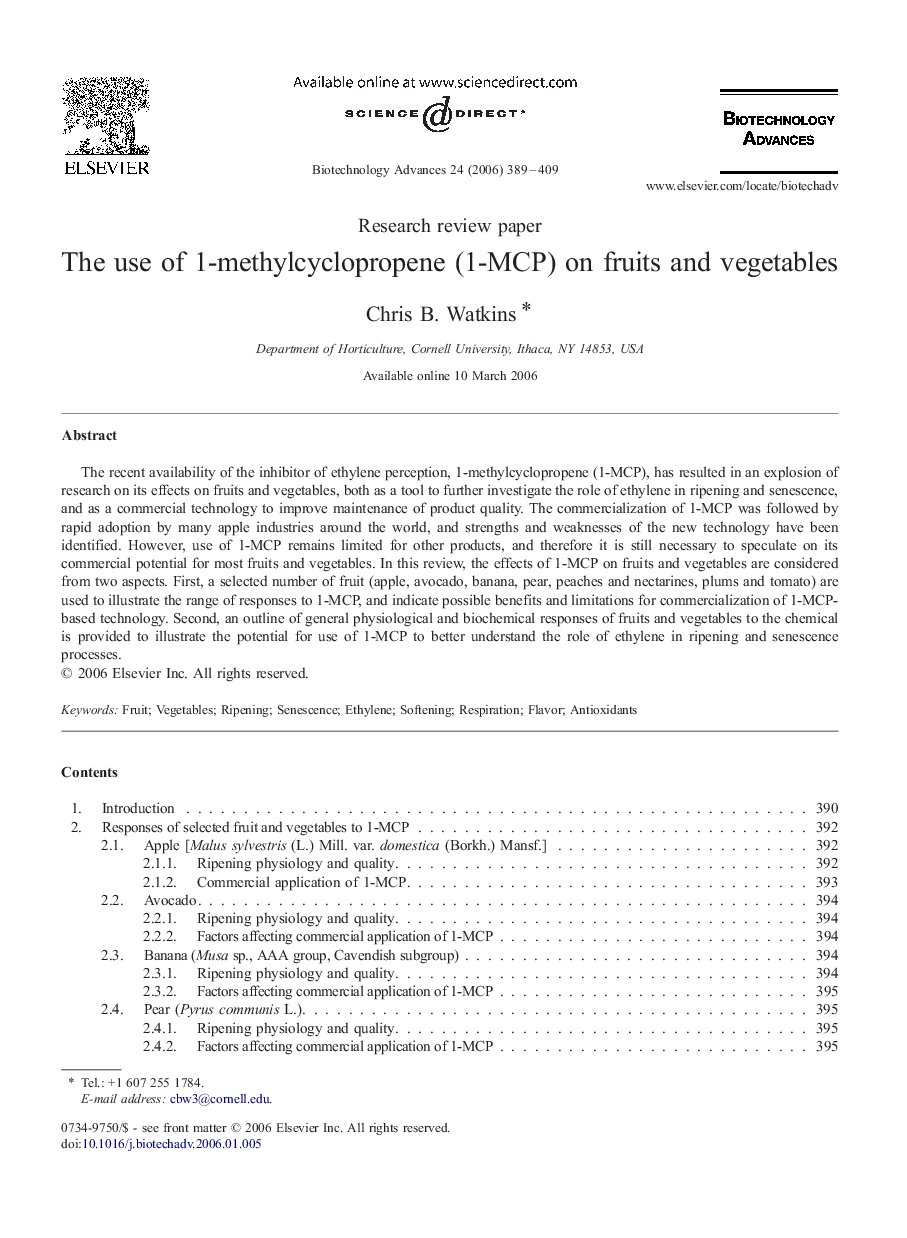| کد مقاله | کد نشریه | سال انتشار | مقاله انگلیسی | نسخه تمام متن |
|---|---|---|---|---|
| 14866 | 1275 | 2006 | 21 صفحه PDF | دانلود رایگان |

The recent availability of the inhibitor of ethylene perception, 1-methylcyclopropene (1-MCP), has resulted in an explosion of research on its effects on fruits and vegetables, both as a tool to further investigate the role of ethylene in ripening and senescence, and as a commercial technology to improve maintenance of product quality. The commercialization of 1-MCP was followed by rapid adoption by many apple industries around the world, and strengths and weaknesses of the new technology have been identified. However, use of 1-MCP remains limited for other products, and therefore it is still necessary to speculate on its commercial potential for most fruits and vegetables. In this review, the effects of 1-MCP on fruits and vegetables are considered from two aspects. First, a selected number of fruit (apple, avocado, banana, pear, peaches and nectarines, plums and tomato) are used to illustrate the range of responses to 1-MCP, and indicate possible benefits and limitations for commercialization of 1-MCP-based technology. Second, an outline of general physiological and biochemical responses of fruits and vegetables to the chemical is provided to illustrate the potential for use of 1-MCP to better understand the role of ethylene in ripening and senescence processes.
Journal: Biotechnology Advances - Volume 24, Issue 4, July–August 2006, Pages 389–409